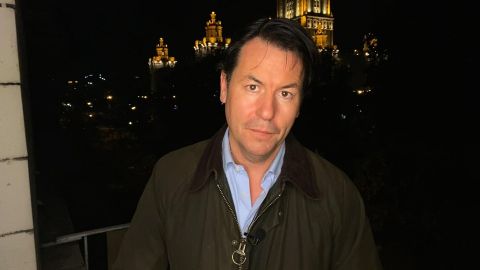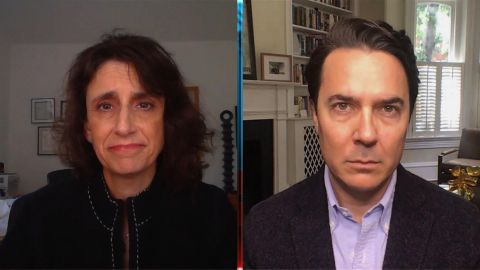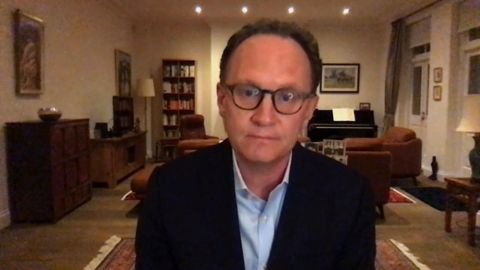Read Transcript EXPAND
RYAN LIZZA, CHIEF WASHINGTON CORRESPONDENT, POLITICO: One, it’s about a denial of the severity of this crisis because politically Trump believes that the worse this crisis is the worse it is for him politically. So, he spread a lot of denial about how bad it is. And then, two, there is a sort of — I don’t know to describe it, but sort of machismo, you know, masculinity view that Trump has and a lot of people around him have that masks make you look weak, right. He has criticized Joe Biden for always wearing a mask in public. And so, just from a political imaging point of view, he sort of (INAUDIBLE) the masks. And a lot of his campaign strategy against Republicans in 2015 and ’16 and against Hillary Clinton and now, against Joe Biden has been about his health and virility, almost this Putin like self-image of himself. And I think that — and that’s what seeps through, that’s what’s talked about on the right quite a bit when it comes to this stuff.
CHRISTIANE AMANPOUR: Deborah, I want to ask you about — again, about succession because the vice president obviously would be, obviously, in line. He’s apparently been tested and he continues to be tested. So far, he’s negative and so is his wife. And then others of have said that Nancy Pelosi, as speaker of the house, would be next. I’m going to play this little soundbite with her, but then I want to ask you, is that really constitutionally established?
(BEGIN VIDEO CLIP)
NANCY PELOSI, U.S. HOUSE SPEAKER: I’m said as the diagnosis that the president and first lady have. Maybe it is the pivotal moment to take us to a different place as we fight this vicious virus based on science not on politics.
(END VIDEO CLIP)
AMANPOUR: So, that’s what she said, very similar to what Joe Biden said and what you heard the former surgeon general, acting surgeon general is saying to us, that they hope this becomes a turning point. But in the meantime, yes, there’s seems to be some kind of provision that the speaker of the house might take over if necessary, but there’s also apparently some dispute about that, that it could be disputed by the secretary of state. Can you tell us, is there a constitutional third in line?
DEBORAH PEARLSTEIN, PROFESSOR, CARDOZO LAW SCHOOL: So, the constitution gives Congress the power to establish rules for the succession following the president and the vice president. The constitution itself says the vice president is second in line. Beyond that, the constitution expressly gives Congress the power to enact a law saying how the line of succession goes. Congress has enacted such a law. It’s been on the books for a number of decades now, it’s called the Succession Act. And under that law, the speaker of the House of Representatives of whatever party is third in line and fourth in line is the president pro tempore of the Senate who is currently a Republican from Iowa, a Republican senator from Iowa, Chuck Grassley. So, that is what the statute provides, Congress has the power to enact that statute.
About This Episode EXPAND
Journalists and health experts weigh in on President Trump’s positive COVID-19 diagnosis.
LEARN MORE




